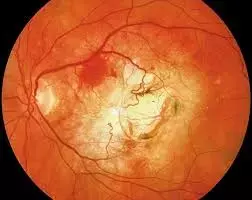- Home
- Medical news & Guidelines
- Anesthesiology
- Cardiology and CTVS
- Critical Care
- Dentistry
- Dermatology
- Diabetes and Endocrinology
- ENT
- Gastroenterology
- Medicine
- Nephrology
- Neurology
- Obstretics-Gynaecology
- Oncology
- Ophthalmology
- Orthopaedics
- Pediatrics-Neonatology
- Psychiatry
- Pulmonology
- Radiology
- Surgery
- Urology
- Laboratory Medicine
- Diet
- Nursing
- Paramedical
- Physiotherapy
- Health news
- Fact Check
- Bone Health Fact Check
- Brain Health Fact Check
- Cancer Related Fact Check
- Child Care Fact Check
- Dental and oral health fact check
- Diabetes and metabolic health fact check
- Diet and Nutrition Fact Check
- Eye and ENT Care Fact Check
- Fitness fact check
- Gut health fact check
- Heart health fact check
- Kidney health fact check
- Medical education fact check
- Men's health fact check
- Respiratory fact check
- Skin and hair care fact check
- Vaccine and Immunization fact check
- Women's health fact check
- AYUSH
- State News
- Andaman and Nicobar Islands
- Andhra Pradesh
- Arunachal Pradesh
- Assam
- Bihar
- Chandigarh
- Chattisgarh
- Dadra and Nagar Haveli
- Daman and Diu
- Delhi
- Goa
- Gujarat
- Haryana
- Himachal Pradesh
- Jammu & Kashmir
- Jharkhand
- Karnataka
- Kerala
- Ladakh
- Lakshadweep
- Madhya Pradesh
- Maharashtra
- Manipur
- Meghalaya
- Mizoram
- Nagaland
- Odisha
- Puducherry
- Punjab
- Rajasthan
- Sikkim
- Tamil Nadu
- Telangana
- Tripura
- Uttar Pradesh
- Uttrakhand
- West Bengal
- Medical Education
- Industry
Port Delivery System better than Intravitreal Injection for Patients with nAMD: study

Port Delivery System is better than Intravitreal Injection for patients with neovascular age-related macular degeneration (nAMD) according to a recent study published in the JAMA Ophthalmology
The port delivery system (PDS) with ranibizumab has demonstrated noninferior and equivalent efficacy compared with monthly intravitreal injections of ranibizumab, an anti-vascular endothelial growth factor (VEGF) agent, in patients with neovascular age-related macular degeneration (nAMD), but evaluating patient preference is important to help inform clinical decision-making.
A study was conducted to evaluate treatment satisfaction for ranibizumab delivered via Port Delivery System vs intravitreal injections as well as a patient preference among those assigned to Port Delivery System.
The archway was a phase 3 randomized active-comparator open-label clinical trial conducted at 78 sites in the US. Patients 50 years and older with neovascular age-related macular degeneration diagnosed within 9 months of screening with a documented response to anti-VEGF therapy were included. Of 619 patients screened, 418 were enrolled; 415 were included in the primary analysis and 234 were included in the secondary exploratory analysis. The Archway study ran from September 12, 2019, through primary readout on May 22, 2020.
Patients were randomized 3:2 to PDS with ranibizumab, 100 mg/mL, with fixed refill exchanges every 24 weeks or intravitreal ranibizumab injections, 0.5 mg, every 4 weeks. Treatment satisfaction was measured using the Macular Disease Treatment Satisfaction Questionnaire in the Port Delivery System and intravitreal injection arms at week 40. Patient preference was assessed using the content-validated PDS Patient Preference Questionnaire (PPPQ), which measured the proportion of patients in the PDS arm with monthly monitoring who preferred treatment with the Port Delivery System at week 40 over previous intravitreal injections or concurrent fellow-eye injections. Both outcomes were exploratory end points.
Results
- The mean (SD) age of participants at baseline was 75.0 (7.9) years; 234 participants (59%) were women and 162 (41%) were men.
- At week 40, differences in overall treatment satisfaction scores were minimal for the Port Delivery System and intravitreal injection arms.
- A total of 234 of 248 patients (94.4%) in the Port Delivery System arm were included in the PPPQ analysis. At week 40, almost all patients in the Port Delivery System arm preferred treatment via Port Delivery System vs previous intravitreal injections, including 172 of 234 (73.5%) with a very strong preference for the Port Delivery System.
- In patients who received concurrent fellow-eye injections (n = 78), 72 (92.3%) preferred the Port Delivery System.
Although Port Delivery System treatment was preferred by almost all patients assigned to Port Delivery System over previous intravitreal injections, both delivery methods have high treatment satisfaction. These findings provide further evidence for the Port Delivery System as a meaningful alternative treatment option for patients with neovascular age-related macular degeneration.
Reference:
Patient Preference and Treatment Satisfaction With a Port Delivery System for Ranibizumab vs Intravitreal Injections in Patients With Neovascular Age-Related Macular Degeneration: A Randomized Clinical Trial by Margaret A. Chang, et al. published in the JAMA Ophthalmology
doi:10.1001/jamaophthalmol.2022.1091
Keywords:
Dr. Shravani Dali has completed her BDS from Pravara institute of medical sciences, loni. Following which she extensively worked in the healthcare sector for 2+ years. She has been actively involved in writing blogs in field of health and wellness. Currently she is pursuing her Masters of public health-health administration from Tata institute of social sciences. She can be contacted at editorial@medicaldialogues.in.
Dr Kamal Kant Kohli-MBBS, DTCD- a chest specialist with more than 30 years of practice and a flair for writing clinical articles, Dr Kamal Kant Kohli joined Medical Dialogues as a Chief Editor of Medical News. Besides writing articles, as an editor, he proofreads and verifies all the medical content published on Medical Dialogues including those coming from journals, studies,medical conferences,guidelines etc. Email: drkohli@medicaldialogues.in. Contact no. 011-43720751


